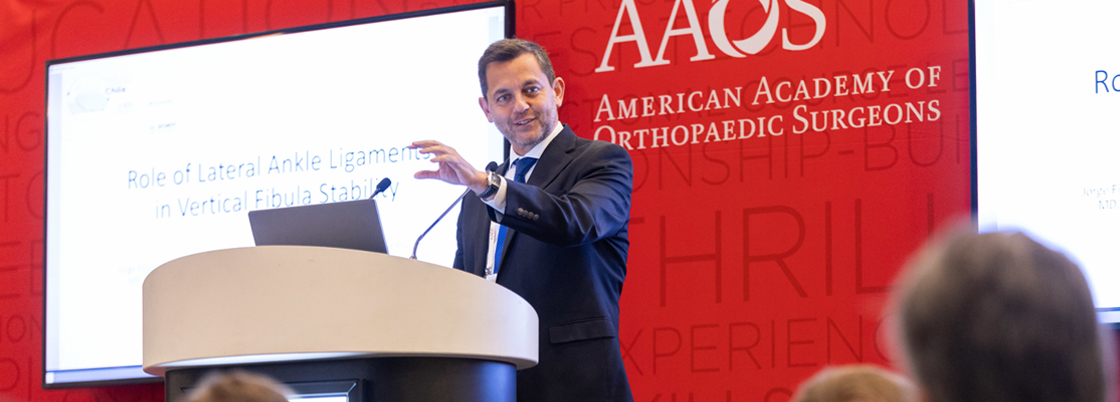CME and Learning Objectives
Claim CME from past Annual Meetings and explore opportunities to earn future CME with AAOS. 2025 CME details will be shared here as they become available.

2025 CME Details
Accreditation: The American Academy of Orthopaedic Surgeons is accredited by the Accreditation Council for Continuing Medical Education to provide continuing medical education (CME) for physicians.
U.S Physicians: The AAOS designates for 2025 this live activity for a maximum of a pending amount of AMA PRA Category 1 Credits™. Physicians should claim only the credit commensurate with the extent of their participation in the activity.
International Physicians: The AMA has determined that physicians not licensed in the United States but who participate in this CME activity are eligible for AMA PRA Category 1 Credits™.
Allied Health Professionals: The AAOS is not accredited to offer credit for nurses and other Allied Health Professionals. To determine if activities offering AMA PRA Category 1 Credits™ are acceptable for your licensing continuing education or certification needs please get in touch with the relevant organizations directly.
To ensure a seamless on-site experience, please note this important information about the AAOS Annual Meeting CME Transcript System:
- You cannot claim CME credit for any educational activities you participate in before you officially check-in to the meeting by visiting the Registration Desk and picking up your meeting badge. For instance, if you arrive at the meeting on Tuesday but do not check-in until Wednesday, you will not be able to claim CME credits for your Tuesday attendance.
- Once you are checked-in to the meeting, you can access an electronic version of your CME Certificate of Attendance.
- Printing stations are not available at the meeting. When on-site, visit the CME Certificate of Attendance kiosk to email yourself your AAOS certificate, as well as certificates from participating Specialty Societies.
- You can begin logging your CME credits in your transcripts approximately 2 weeks after the meeting.
Specialty Society Program CME (Coming Soon!).
The grid below outlines the types of activities that are available at the Annual Meeting and notes which qualify for AMA PRA Category 1 Credit™.
Learning Objectives

Global Objectives
- Develop and refine a perspective on the broad range of orthopaedic knowledge, care and surgical practice.
- Expand and integrate an understanding of the scientific and clinical tenets of orthopaedic surgery to better prevent and treat musculoskeletal disease.
- Develop an understanding of economic and practice management challenges that can lead to strategies that protect continued access to care for patients and viability of the profession.
- Provide a forum to strengthen professional relationships and develop networks that lead to better patient care, individual surgeon career satisfaction, and a more robust profession as a whole.
Instructional Objectives
- To facilitate a personalized educational experience through a comprehensive offering of instructional courses, symposia, and scientific presentations.
- Support a forum for discussion of current issues in orthopaedics including patient safety, advocacy, practice management, technology, and culturally competent care.
- Offer complementing formats to facilitate career-long education that meets the expectations and requirements of patients, colleagues and Maintenance of Certification.
- To provide a forum for the presentation of basic and clinical research with current as well as future potential applications in the management of patients with musculoskeletal disease or injury.
Learner Objectives
- Synthesize a basis for the practice of delivering evidence based, cost effective orthopaedic care, both patient centered and population based.
- Integrate current basic science, translational research, and state-of-the art procedures and technology into clinical practice.
- Become more informed and involved in advocacy issues related to orthopaedics.
- To provide a forum for resident education on current clinical practice, relevant basic science, practice management, and advocacy issues in preparation for careers as competent and ethical orthopaedic surgeons.
AAOS 2025 Call for Abstracts Is Open
Share your knowledge and research at the AAOS 2025 Annual Meeting, March 10–14, in San Diego. Applications and abstracts are now being accepted. Nowhere else will your discoveries reach such a wide-ranging audience.


